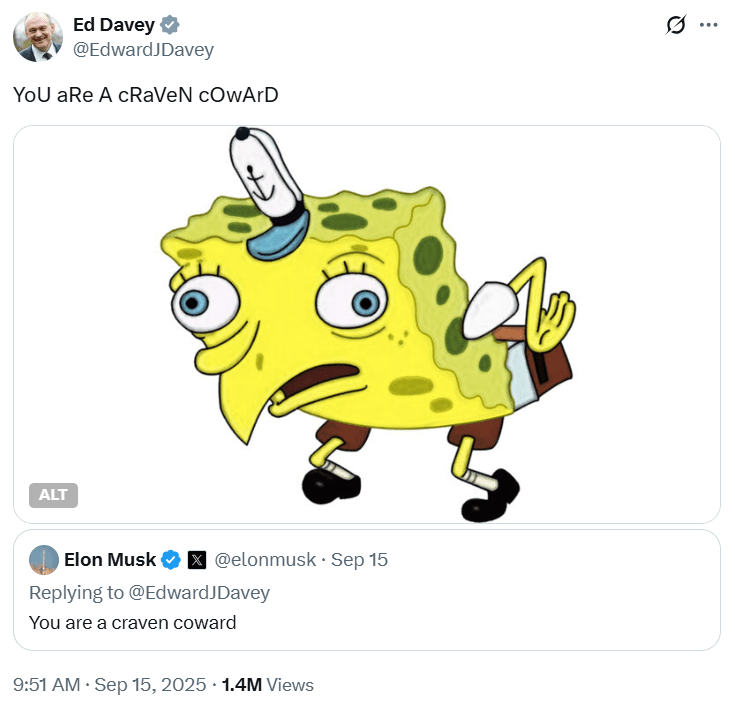At last week’s launch of EverydayAI Liberal Democrats new AI policy framework, UKAI sat down with Victoria Collins, the party’s spokesperson for science, innovation, and technology, to explore the principles guiding her party’s approach to artificial intelligence, how governments should balance the interests of tech companies and citizens when legislating AI, and her party leader’s recent comments about Elon Musk.
Collins was somewhat critical of the current government’s approach to AI. Whilst she appreciated that they were capitalising on some of the opportunities it provides, she accused them of ignoring the challenges it poses.
As a result, Collins, who used to own a technology company, believes that it is her duty to use her expertise to ask the right questions and hold the government to account, to ensure that we get ‘better technology for tomorrow.’
She said that the Lib Dems approach is more about building trust between consumers and companies; whilst some would argue that increased security regulations regarding tech companies could be bad for business, she disagrees, believing that a heightened levels of trust will attract more consumers towards AI products.
Striking a balance between seemingly competing stakeholders has been a fundamental guiding approach for the Lib Dems’ AI policy framework. During their consultation period they brought tech companies and consumer representatives together to find common ground, recognising that both parties had valid interests and that working together would be better for innovation, economic growth, and public safety. She made it clear that all points of her party’s policy framework were of equal importance, and that none were in conflict with each other.
Collins was also asked for comment on her party leader Sir Ed Davey’s recent feud with Tesla and SpaceX CEO Elon Musk. Davey wrote to the Prime Minister on the weekend asking to condemn comments Musk made via video-link at a Tommy Robinson rally on Saturday. Musk responded by labeling the Liberal Democrat leader a ‘coward,’ to which Davey responded with a SpongeBob meme.

This was not the first spat between the former Energy Secretary and the world’s richest man; In January, Davey said that Musk ‘clearly knows nothing about Britain,’ after Musk made comments about the British grooming gang scandal. Musk replied to this comment by calling Davey a ‘cretin.’
Asked whether Davey and Musk’s spat meant that a Liberal Democrat government would not collaborate with Musk’s XAI artificial intelligence company, Collins did not give a clear answer, stating that the devil would be in the detail of any hypothetical deal, and that technology must be ‘good for society.’
However, further comments, in which she branded Musk’s behaviour ‘appalling,’ and accused him of ‘stirring up hate’ in a way that her party ‘absolutely (does) not stand for,’ makes it appear unlikely that a hypothetical Liberal Democrat government would sign a contract with any of his companies.
Instead a Liberal Democrat Department for Science, Innovation, and Technology would be focussed on building bridges between tech companies and consumers, endeavouring to balance competing interests in order to craft a ‘British vision’ of artificial intelligence.

